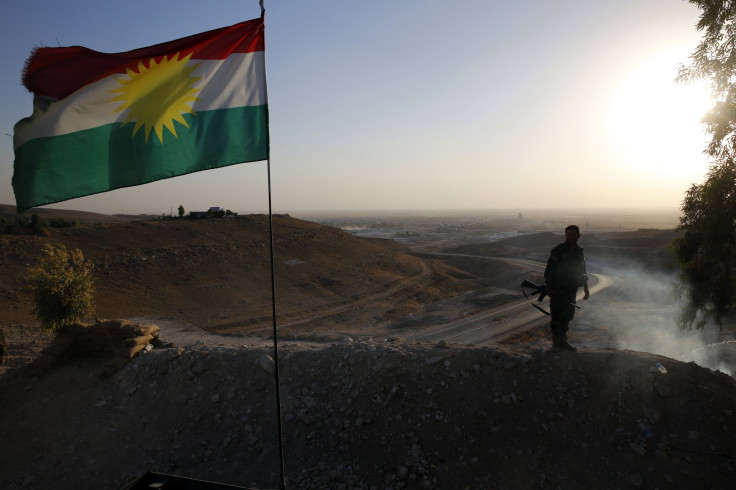Rare But Deadly Car Bomb Explodes In Iraqi Kurdistan Capital Erbil, Surrounded By ISIS Territory

For the first time in seven months, and the first since the Islamic State declared itself a caliphate, an attack has hit the capital of the autonomous Kurdistan Region of Iraq. A suicide bomb just outside the governorate building in Erbil killed at least four people and left dozens wounded on Wednesday.
Despite being very close to the edge of the Syrian war and of territory in Iraq controlled by the Islamic State, or ISIS, Erbil had succeeded in isolating itself from violence and was considered the most secure place in Iraqi Kurdistan. The city is heavily protected by Iraqi Kurdish peshmerga forces and until Wednesday there had been no fatal attacks in more than a year.
“There is no way they [ISIS] will come here,” a human rights activist who went by the name Jihan told International Business Times in June. “It is so safe here. We have the security other places don’t.”
No one has claimed responsibility for the attack, but Erbil’s governor blamed the group formerly known as ISIS.
"An unfortunate event has unfolded today," Nawzad Hadi told Rudaw News. “Kurdistan is facing a great threat regionally from ISIS.”
The attacker tried to drive his explosive-laden Hyundai Elantra into Erbil’s governorate building, located near the ancient citadel, according to officials who spoke to Rudaw. The 6,000-year-old citadel is considered the longest continually inhabited area in the world and is protected by blast walls, according to the Kurdistan Regional Government.
#Erbil’s answer to terrorists http://t.co/kSCcXHg4GI
— Rojname (@Rojname) Nov. 19, 2014“We have known for three weeks that there was a plot inside Erbil,” an intelligence official speaking on the condition of anonymity, told McClatchy. “I hope this is all they had planned.”
Guards were able to stop the attacker from entering the citadel, but he detonated the bomb anyway. Initial reports said the blast killed two police officers and four civilians, but the Kurdistan Regional Government (KRG) has confirmed only four deaths.
"We reassure all citizens and guests that the Kurdistan Region's security forces remain at the highest level of alert. Such incidents are rare and indeed tragic,” the KRG said in a statement. “They do not frighten us and will not interrupt our efforts to continue developing and strengthening our region."
Since ISIS began seizing territory in Iraq and Syria this summer, Kurdish troops have been one of the strongest forces battling militants on the ground. They’ve also been some of the hardest hit in the conflict. But that has not weakened their resolve and has fostered a sense of unity among different Kurdish factions.
"The Kurds have secured American support and are more self-confident than ever,” columnist Cengiz Candar wrote in al-Monitor last week, “with Erbil serving as a hub for politics, intellectual interaction and a venue for reconciliation among conflicting components of Iraq.”
© Copyright IBTimes 2024. All rights reserved.












